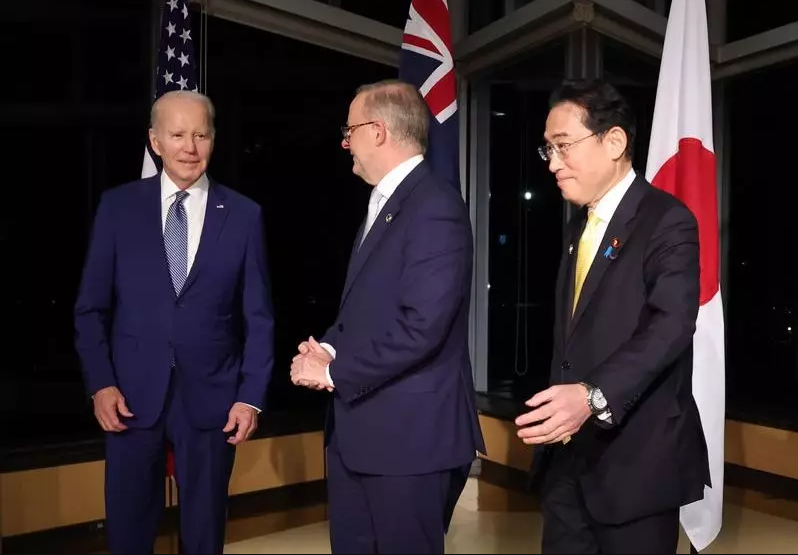
Cui Lei, Research Fellow, China Institute of International Studies
May 02, 2024
The United States has incentives to outsource the production of weapons, as its domestic capacity is insufficient to meet its needs. Co-production benefits others. But it’s also likely to lead to proliferation across borders, create regional security tensions and increase the risk of conflict.
He Wenping, Senior Research Fellow, Charhar Institute and West Asia and Africa Studies Institute of the China Academy of Social Sciences
May 02, 2024
Washington does not want the Israeli-Palestinian conflict to escalate, as that would undermine its “pivot to Asia” strategy. But it doesn’t mind so much when Israel attacks Iran because that serves as a sort of proxy warning to other hostile forces in the Middle East.
Jade Wong, Senior Fellow, Gordon & Leon Institute
Apr 19, 2024
The French president has no intention of rushing troops into Ukraine without first getting his country’s allies to buy in. However, his rhetoric has be alarming, leading to serious discussions about escalation. It’s a very dangerous development.
Xiao Bin, Deputy Secretary-general, Center for Shanghai Cooperation Organization Studies, Chinese Association of Social Sciences
Apr 19, 2024
If Donald Trump returns to the White House next year, it might represent a turnaround for Russia. Although President Vladimir Putin has said that Russia would prefer Joe Biden, he also cannot fail to see an opportunity in Trump to continue his quest to restore Russian dominance, starting with Ukraine.
Kemel Toktomushev, Research Fellow, University of Central Asia
Apr 12, 2024
While Central Asia is caught between two adversarial powers, it is unlikely to distance itself from Russia and China due to its geographical proximity and the already well-established ties between these nations.
Dan Steinbock, Founder, Difference Group
Apr 05, 2024
The doctrine of “assertive transparency” has dramatically escalated South China Sea tensions. Among other things, it has paved the way to the alignment of the U.S., Japan and Philippines in the impending April summit.
Lucio Blanco Pitlo III, President of Philippine Association for Chinese Studies, and Research Fellow at Asia-Pacific Pathways to Progress Foundation
Apr 05, 2024
Confrontations over the South China Sea are startling events that bring up the potential for heated conflict, but disagreements in troubled waters have ripple effects that lead to economic problems as well.
Xiao Bin, Deputy Secretary-general, Center for Shanghai Cooperation Organization Studies, Chinese Association of Social Sciences
Mar 22, 2024
As more relatively weak countries find themselves unable to stay out of the war, China must walk a careful path. It must avoid and mitigate risks, safeguard its national interests and put Ukraine on the road to peace at an early date. To this end, it needs a more flexible and pragmatic strategy.

Cui Hongjian, Director of the Department for European Studies, China Institute of International Studies
Mar 12, 2024
With Vladimir Putin hinting at the possible use of nuclear weapons and Europe responding more aggressively, the prospect of victory seems to be tilting away from Ukraine. China’s diplomatic maneuvering for peace should set an example for the international community.
Jade Wong, Senior Fellow, Gordon & Leon Institute
Mar 04, 2024
The possibility of another Trump-style leader in the United States — perhaps even Donald Trump himself — has shaken Europe to its roots. Europe cannot replace American hegemony. Thus, its only course is to accelerate toward “strategic autonomy” to become less dependent on the U.S. security umbrella, which has been in place since World War II.